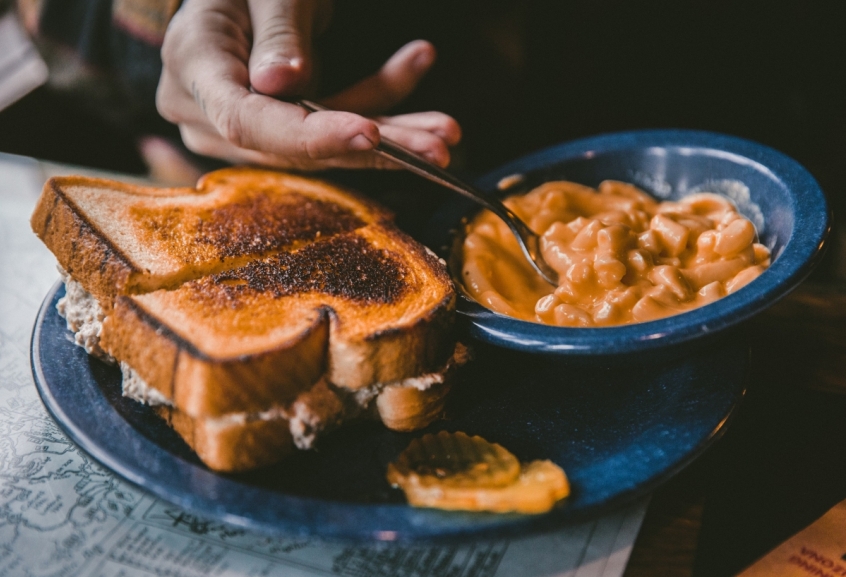
There has been much reporting in the press this week about Leeds becoming the first city in the UK to reduce childhood obesity. Leeds council have introduced an eight week parenting programme, to teach parents how to "take charge" and a study undertaken by Oxford University has shown that the eight week programme has been linked to a significant drop in obesity levels.
This is good news. When I first read these articles I wondered how parents would react when approached to attend the parenting classes. Would they feel patronised, humiliated or would they welcome the opportunity of learning?
Childhood obesity, without doubt, is a health crisis. The fact that it is often children who live in deprived areas that struggle with their weight is not surprising. Unhealthy food is cheaper than healthy food. Processed food costs significantly less than fresh meat, vegetables and fruit.
When I was a single parent, there were often times when I would go without more costly food to ensure my daughters were able to eat a balanced diet. Pasta became our staple because it was filling and cheap. Value ranges of tinned fruit and veg became my friend. When you are experiencing poverty, you would rather your child was full with unhealthy food than for them to go hungry.
I was fortunate because I had some culinary know-how. I knew how to make pasta with tinned tuna and tinned veg and make it taste good. I had learnt to cook by watching my grandmother and mother. My grandmother was my role model in the kitchen, she knew how to budget and knew how to cook. She was the 14th child in her family and had grown up in a home where food and money was scarce. If she didn't finish her food, it would be brought out for her to eat at the next meal and the next until her plate was cleared, nothing was wasted.
I work as an advisor for the charity, The Cinnamon Network, where one of our aims is to try to make it as easy as possible for local churches to help those most at need in their communities. Time and time again, food poverty is the most pressing need in many of the church communities I work with and, as a result, churches often set up food banks or Make Lunch projects (providing hot meals during school holidays) in response to that need.
Food banks, Make Lunch and similar projects are a necessary and valuable resource but they are a sticking plaster on a broken system.
As a society and as followers of Jesus we need to be doing more than throwing a can of baked beans at this disturbing and distressing problem. We need to be loving and working with our communities, supporting them and enabling those who are struggling to find ways out of their crisis.
An average food bank parcel contains a standard packing list that is put together by a nutritionist and is designed to cover all the nutritional needs. However, I wonder how many of the people receiving a food bank parcel know what to do with what it contains?
When I was struggling to make ends meet, a kindly health visitor told me, "Mandy, give them a piece of wholemeal toast, some baked beans, an apple and a glass of milk and you will have covered all the food-groups."
I knew the food-groups that my children needed to eat to thrive, but what about those parents who don't?
Have we failed the generation who are now parents? How many of us have taught our children life skills? Taught them how to cook, taught them how to budget, taught them how to survive life?
Maybe we weren't able to teach them because we weren't taught.
So no, I don't think a parent should feel patronised or humiliated by admitting they need help. I think they should be applauded and encouraged because they obviously want to get it right and do it better. And yes there is a place for parenting classes but maybe more importantly there is a place for community.
Our church community has recently been hosting nights called "Raising Faith", a space to talk about our children, to share our challenges and struggles but also to share our triumphs and successes. A space where we learn from each other, learn from those who have gone before and are encouraged by knowing we're in this together.
Maybe this is what we are missing sometimes in our churches and communities, spaces where we can share and learn together.
The often quoted African proverb says "It takes a village to raise a child". We as Christ followers are part of that village, so let's be more than a sticking plaster, let's be part of the healing and transformation. Let's be a part of the village and not apart from it and let's raise our children together.
Mandy Bayton is The Cinnamon Network Advisor for Wales, a speaker and a freelance writer. Follow her on Twitter @mandyebayton













